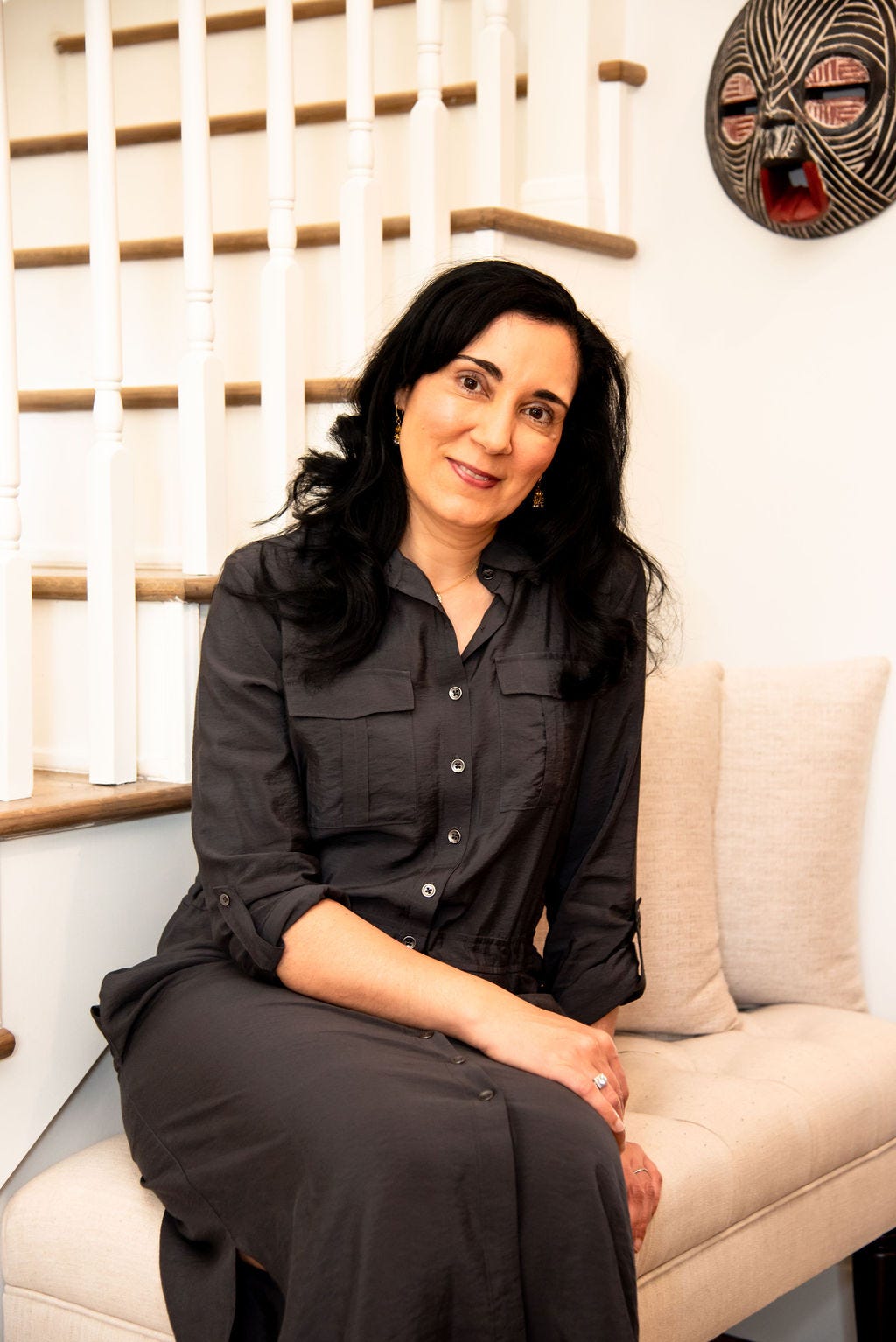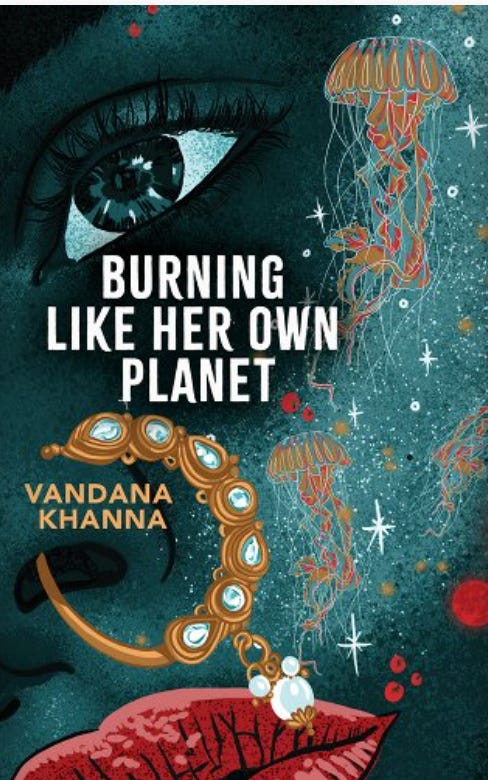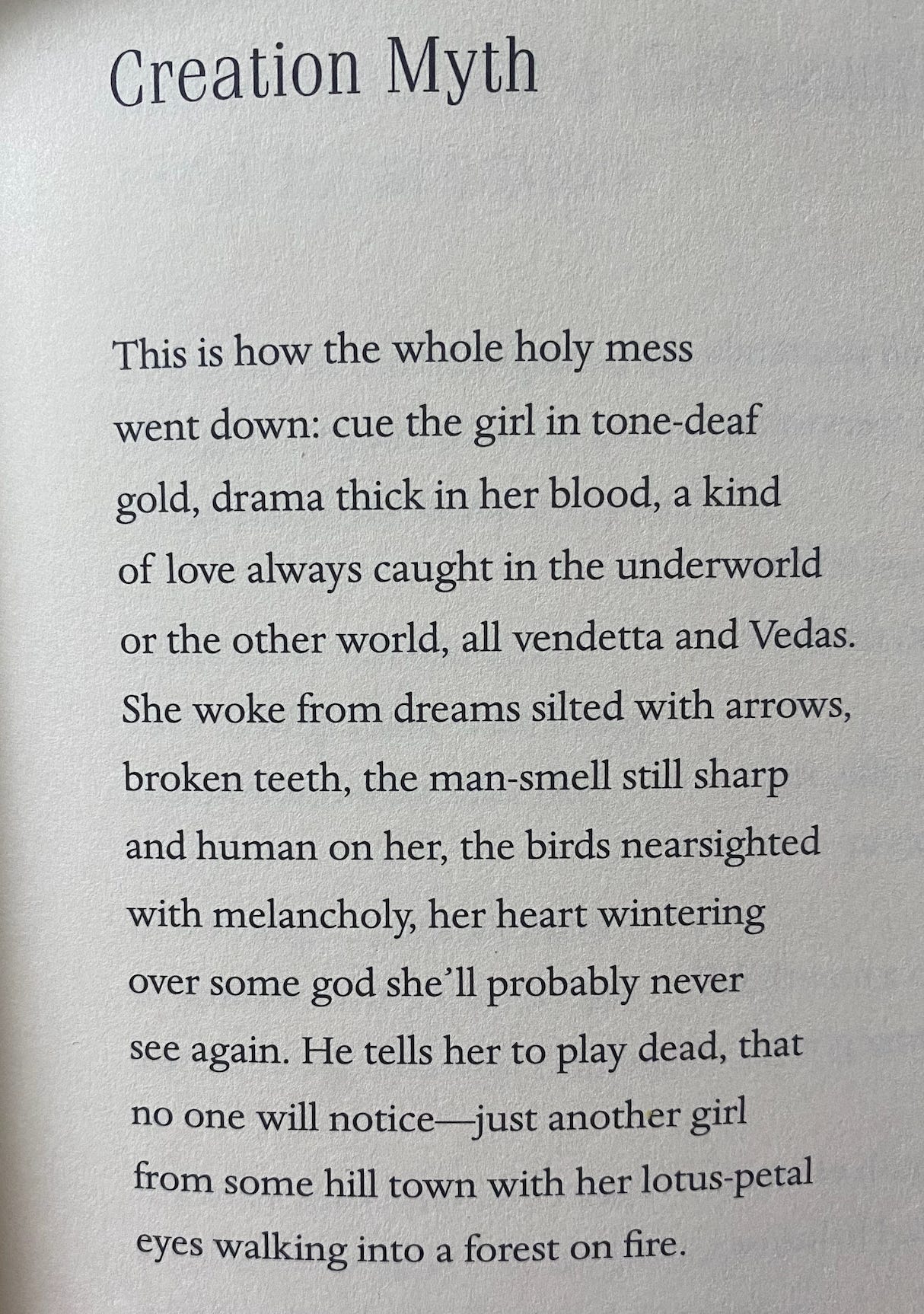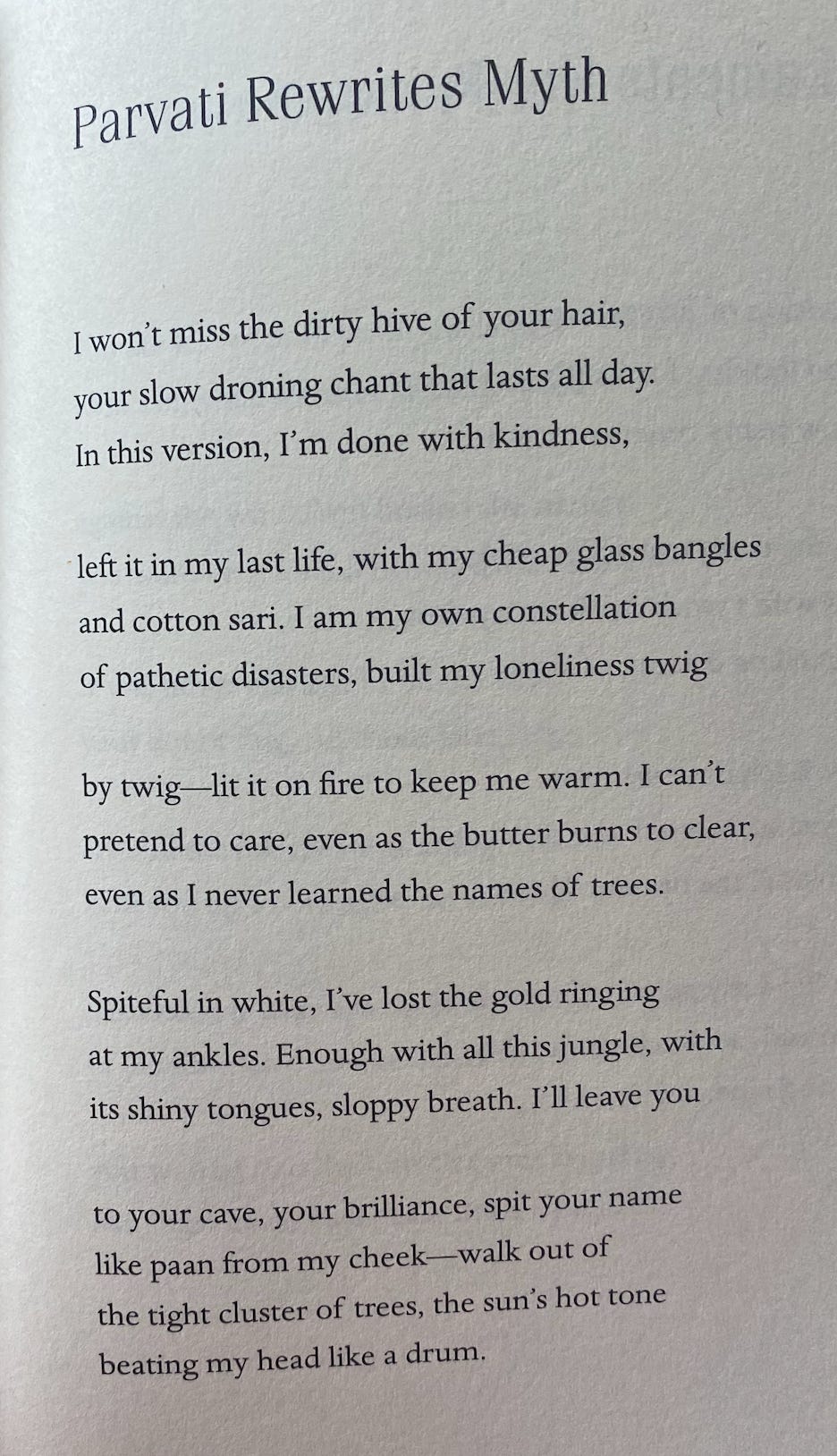"Some deeper obsession or idea": Vandana Khanna on her most recent poetry collection, Burning Like Her Own Planet
And a few submission opportunities & 3 new books
Before today’s interview with Vandana Khanna, a short list of submission opportunities and new book alerts:
📗 Coolest American Stories is now open for submissions for the 2026 edition. You’ll find a recent Bookish interview with one of its cofounding editors, Mark Wish, here.
📕 The Hollis Summers Poetry Prize at Ohio University Press for book-length collections (60-95 pp) is now open for submissions—more information here.
📙 Congratulations to Anthony Pignataro, novelist and longtime journalist who has written and edited newspapers in far-flung places that include Maui and Orange County, CA. His new novel, The B Girls, is now in the world! A new work of nonfiction, Remembering Lahaina: What I Learned About Tourism and Myself During Twelve Years on Maui, will also be published later this spring.
📒 Belated congratulations to , whose new YA novel, About Grace, was published last month. (Barb’s Substack, , is one of my favorites - her reviews are excellent.)
📘 Lastly, new-book best wishes to another fellow Substack —her short story collection, Katy Family, is out officially tomorrow, Monday, April 14!
—
Los Angeles-based poet Vandana Khanna’s most recent poetry collection, Burning Like Her Own Planet (Alice James Books, 2023) is defined by poems that are like struck matches held up to illuminate the present moment. She is a poet of acute insights into the human tragicomedy and the gender roles—often conveyed with humor—that define so many of our earthly interactions.
I’ve loved each of her collections—her first two are Train to Agra and Afternoon Masala—and her chapbook, The Goddess Monologues, and am greedy for her next book, which she talks a little about at the end of our interview.
Van is a writer whose work I recommend to students and fellow readers and writers so often. It’s such a pleasure to share this interview and two poems from Burning Like Her Own Planet below.
Christine/Bookish: In your most recent book, Burning Like Her Own Planet, and in your 2018 chapbook The Goddess Monologues, Hindu goddesses are the speakers of many of your poems. Parvati, goddess of love, fertility, and marriage, is a recurring character. The god Vishnu also makes an appearance. How did you begin writing these poems, which are so artfully grounded in the sensory and sensual?
Vandana Khanna: Many of these poems started from reading the original texts and imagining the voices behind these ancient stories as real people with emotions, ambitions, and motives. Very quickly, I realized that I couldn’t ignore the voices of these goddesses as they demanded space and freedom to tell their side of the story. I focused primarily on creating the world of these poems by paying close attention to sensory details. I wanted the reader to feel like they were walking through the forest with Sita, to see what she saw, taste the rain on her tongue, smell the ash in the air.
CS: Along with Burning Like Her Own Planet and The Goddess Monologues, you've published two other other full-length poetry collections, Train to Agra and Afternoon Masala. As you wrote the poems in each, were you writing toward a collection? Or do you usually think of your poems as stand-alone as you write them, but in time concordances reveal themselves?
VK: I’ve always written “project books,” even from my first collection, Train to Agra, which was my master’s thesis. The process begins fairly organically in the drafting stage when I’m still playing and allowing myself to write without constraints.
Early in this process I’ll begin to notice if the majority of material seems to be revolving around a recurring image, phrase, or voice. This, in turn, signals to me that there’s some deeper obsession or idea that I haven’t quite figured out but is buried somewhere, waiting for me. I continue to heighten these threads, often by viewing situations or images from a slightly different angle, so that they are living in the same world but maybe in different time zones.
I don’t always know what all the themes of an entire collection might be as I’m writing it—that tends to emerge in the later stages of revision. My work at any given moment is to get a more complete picture of what’s lying underneath the surface, to excavate it, and hold it up to the light. The rest is up to the reader’s own imagination and interpretation.
CS: You've taught creative writing at a number of universities, most recently USC and Antioch University. When you teach, do you find yourself thinking about why and how you write?
VK: Teaching is a great way to be in conversation with my own writing practices and beliefs. It often requires me to examine more purposefully the ways in which I create, why I create, and what it means to be a writer in the world. It can help to strengthen my commitment to the practice, while also reminding me that writing is a process, and that to grow as an artist, I should be willing to stretch beyond what I know into more of the unknown.
CS: You’ve written fiction and nonfiction too—but I'm guessing poetry is your first love. What spurs you to write an essay or a short story instead of a poem?
VK: My first love actually is storytelling. I love a good story, no matter what form it takes. The more I write, the more I allow myself to let the material decide how it wants to present itself to the world. Sometimes an idea demands a different kind of exploration, requires that I move beyond the limits of a line, that literally needs more words to get to the heart of a matter.
For a poem, I begin with an image, with language, with music. Prose usually starts with a voice, a thread of a story that I want to know more about. Both require a certain amount of heat or energy, but with poetry it flares intensely and with prose, it’s more of a sustained flame that keeps burning.
Short story, “Heroine”
Essay, “The In-Between Girl”
CS: What are you working on now?
VK: I’m currently working on a fourth collection of poems told through a series of letters from Penelope to her long-lost husband, O. I’m also working on some short stories about young women finding their way into adulthood. I try and not force myself to stick to a specific path or agenda—I’ll follow wherever inspiration leads me.
—
Born in New Delhi, India, Vandana Khanna is a writer, educator, and editor. Her books have won the Crab Orchard Review First Book Prize, the Miller Williams Poetry Prize, and the Diode Editions Chapbook Competition. Her work has appeared widely in publications such as the Academy of American Poets’ Poem-a-Day, The New Republic, New England Review, Guernica, and The Penguin Book of Indian Poets. She served for many years as a poetry editor at the Los Angeles Review and resides in Los Angeles, California with her family.





Excellent post! Thanks for the introduction to this fine poetry, Christine.